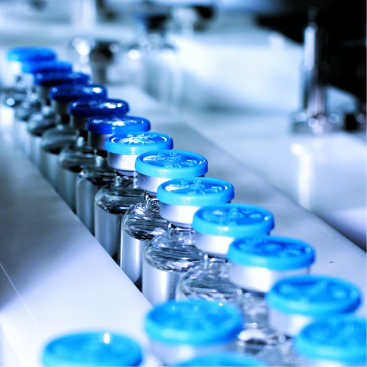Catalog
Learning Objectives:
Important workflows for enabling and modified release formulations to set up a biopredictive dissolution test
Integration of dissolution into modeling to derive IVIVC.
The importance of biorelevant aspects of the human GI tract that affect drug product behavior.
About this item
The program will highlight the connection between in vitro dissolution testing and in vivo bioperformance of the tested drug product. Both speakers will emphasize the importance of crucial biorelevant aspects that were needed to incorporate into in vitro dissolution systems to match the systemic plasma concentration-time profiles. Finding the link between in vitro and in vivo (so-called in vitro-in vivo correlation (IVIVC)) is of major benefit for people working in drug product development. Both speakers will highlight their workflow how they were able to develop IVIVC for amorphous solid dispersions and modified-release formulations.
Learning Objectives:
- Important workflows for enabling and modified release formulations to set up a biopredictive dissolution test
- Integration of dissolution into modeling to derive IVIVC.
- The importance of biorelevant aspects of the human GI tract that affect drug product behavior.
Speaker Information
Alessia Favaron
Alessia Favaron is a final-year PhD student at University College London's (UCL) School of Pharmacy, working under the prestigious Marie Curie programme Horizon2020 COLOTAN-ETN. Her research focuses on the interactions between medicines and the human gut microbiota, with a specific emphasis on inflammatory bowel disease (IBD). During her PhD, Alessia completed a four-month placement at Pfizer UK. There, she investigated the actual concentration of drugs reaching the colonic region of the gastrointestinal (GI) tract and their interactions with the dense microbiome. This research employed dissolution techniques such as USP Apparatus and TIM1, complemented by in silico PBPK modelling. Her work at Pfizer enriched her expertise in biopharmaceutics.
Alessia's academic journey began with her Master of Pharmacy degree, which she obtained in 2020. Her MPharm final project, conducted at the Institute du Thorax in Nantes, France, involved studying dyslipidemias in mice. This project allowed her to gain valuable experience in both in vitro and in vivo studies. Following her degree, she acquired a license to practice as a pharmacist and worked for a year in a local pharmacy.
Alessia was a speaker at Soapbox Science London (2022 Edition), where she showcased her research to the public. Her passion in research has been recognised through various awards, including the Best Lecture Prize at the School of Pharmacy and second place for Best Pitch at an entrepreneurship workshop.
Ana Coutinho, PharmD., Ph.D.
Ana Coutinho is a Senior Scientist in Pre-clinical Development and Biopharmaceutics at Merck with expertise in PBPK/PBBM and IVIVC. She received her Bachelor of Science in toxicology from Pennsylvania State University and a PharmD from the University of Maryland School of Pharmacy (UMB). Ana also completed her PhD thesis research in Dr. James Polli’s lab at UMB. As part of her PhD research, Ana developed an in vitro-in vivo correlation model (IVIVC) to predict the human pharmacokinetics of itraconazole spray-dried dispersion tablets with different release rates from dissolution experiments. As part of this project, Ana collaborated in the manufacturing of tables, conducted the clinical study in human healthy volunteers, and devised the in vitro dissolution experiments. As part of her IVIVC work, Ana received the NIH TL1 Clinical Research Training Award.
In addition to her IVIVC thesis work, Ana also expanded on the use of liquid state nuclear magnetic resonance techniques to streamline polymer selection for amorphous solid dispersions and studied the impact of drug logP estimates on human volume of distribution predictions.
